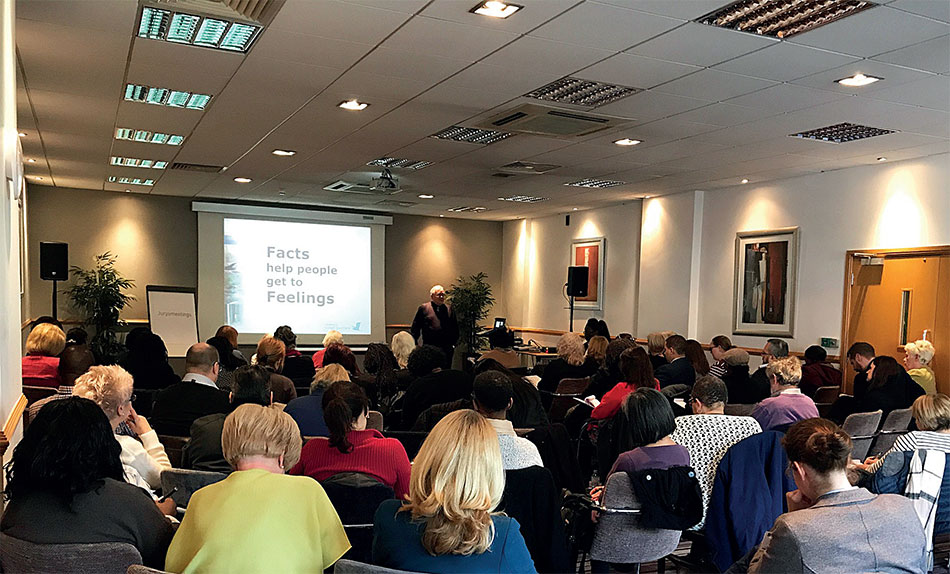Dying Matters: community support

Six months to the day after the Croydon tram crash tragedy, which killed seven people, the town’s independent funeral director Rowland Brothers opened a two-day grief seminar.
The first day was aimed at supporting bereavement professionals and volunteers affected by the disaster and similar tragic events. The following day focused on suicide and its aftermath.
Both days, at Croydon’s Jurys Inn Hotel, drew large attendances. Delegates included professional bereavement practitioners, such as social workers, care home staff, police family liaison officers, and volunteers from local counselling groups, charities and churches.
For many, their certificated participation formed part of their ongoing training in grief counselling.
The seminar – held during national Dying Matters Awareness Week – takes place annually as part of Rowland Brothers’ ongoing programme designed to help the community it has served since 1873.
This year’s guest speaker was internationally renowned bereavement specialist and SAIFInsight columnist, Dr Bill Webster. The Scottish-born Canadian is also author of 10 books on grief counselling.
In the four sessions on the first day, Dr Bill pointed out that people do not simply remember crises, they re-experience them, and those involved professionally, or as volunteers, have a vital role to play in the recovery of those affected.
Among other topics, he took the delegates through the principles of post-traumatic stress disorder (PTSD), explaining the risk factors and consequences of delayed grief.
A number of years ago, Rowland Brothers pioneered the practice of offering ongoing personalised support to the families of people whose funerals are conducted by the company, and its operation has set the standard in this field. Its dedicated team regularly visits nursing and care homes and churches of all denominations, and bereaved families can contact the company for emotional and practical support at any time, even years after the funeral. No charge is made for this.
Dr Bill also focused on the need for caring professionals to take care of themselves too, and avoid the consequences of compassion fatigue, which can lead to burn-out. The cost of caring for others is emotional pain, he said, which can damage professional and family relationships. The ‘vicarious traumatisation’ of sharing other people’s grief takes its toll.
The best response, he said, is to take care of yourself by recognising the risk, creating periods of rest and renewal, setting realistic limits to what you can offer people, developing healthy lifestyle patterns, and identifying one’s unique signs of stress.
The second day’s seminar tackled the subject of death by suicide. Dr Bill spoke of the unique nature of grief after suicide and the role of professionals and volunteers in promoting recovery, offering 10 healing strategies.
Dr Bill spoke of 10 needs of people traumatised by the suicide of a loved one, and suggested ‘10 tasks of mourning’. He pointed out that recovery does not follow a linear timescale, but oscillates between good and bad days, and can take months or years. He emphasised the important role played by the community in the aftermath of suicide.
“If the community is working well, grief counsellors would be out of a job,” he said.
Certificates of attendance were given to everyone. Go to www.rowlandbrothers.com for more information.
Tags: awareness, care, Croydon, Dr Bill Webster, Dying Matters, grief, Grief Journey, NCPC, palliative, Rowland Brothers, seminar, week